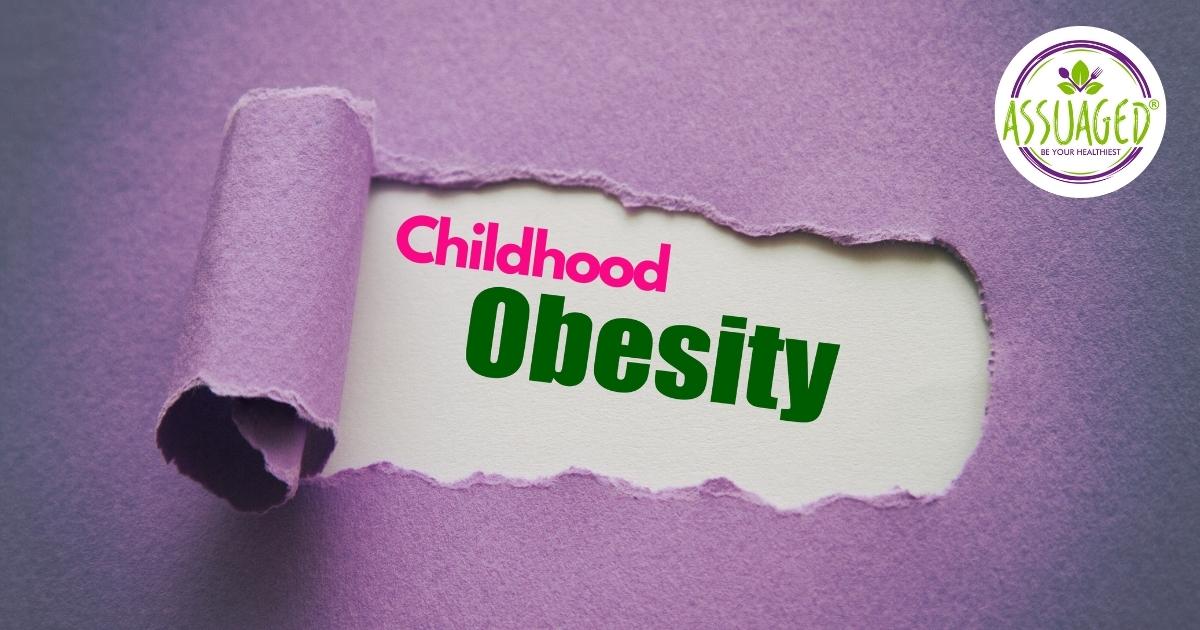In the United States, obesity affects one out of every five children and adolescents. It is a condition, once acquired, that is more likely to follow into adulthood.[2]

What is Childhood Obesity?
Obesity during childhood is one of the most prevalent chronic conditions in children.[4] It is a condition that occurs when a child’s weight exceeds the healthy parameters for their age and height.
These parameters include having a body mass index(BMI) that is equal to the 95th percentile or above based on growth charts from the Centers for Disease Control and Prevention (CDC).[2]
Obesity in children increases the outcomes of adverse short-term and long-term health effects along with an elevated risk of becoming obese as an adult.[4]
The Prevalence of Childhood Obesity
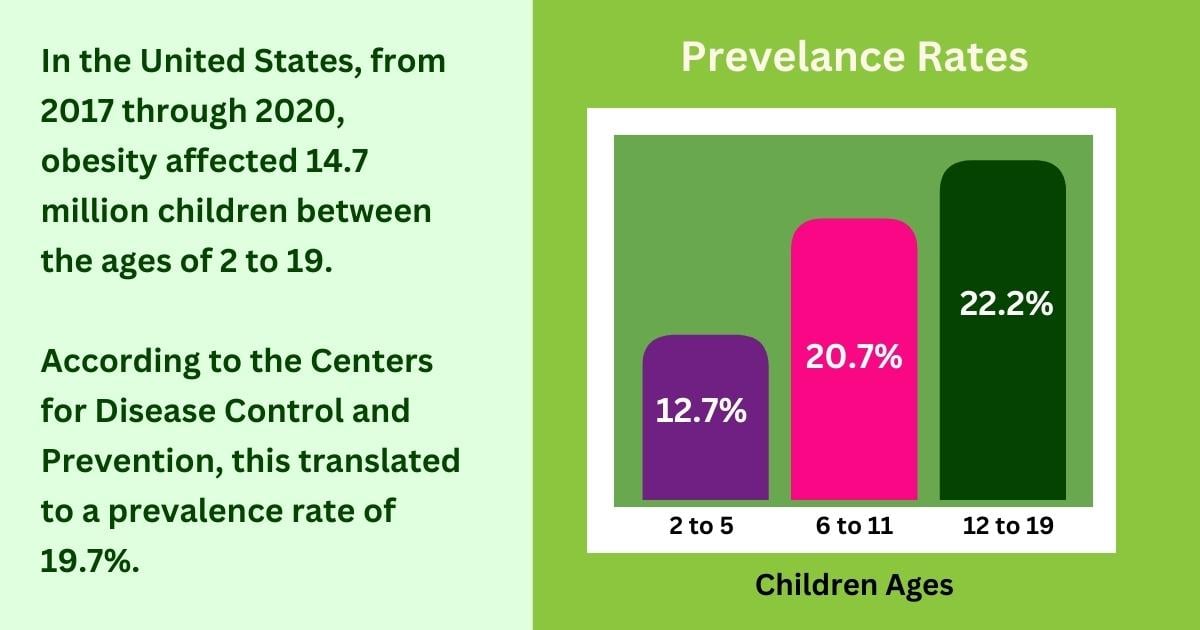
Although childhood obesity can affect a child in any ethnic group,[2] the occurrence of childhood obesity is most commonly seen in children from Hispanic and Black ethnic groups.[1]
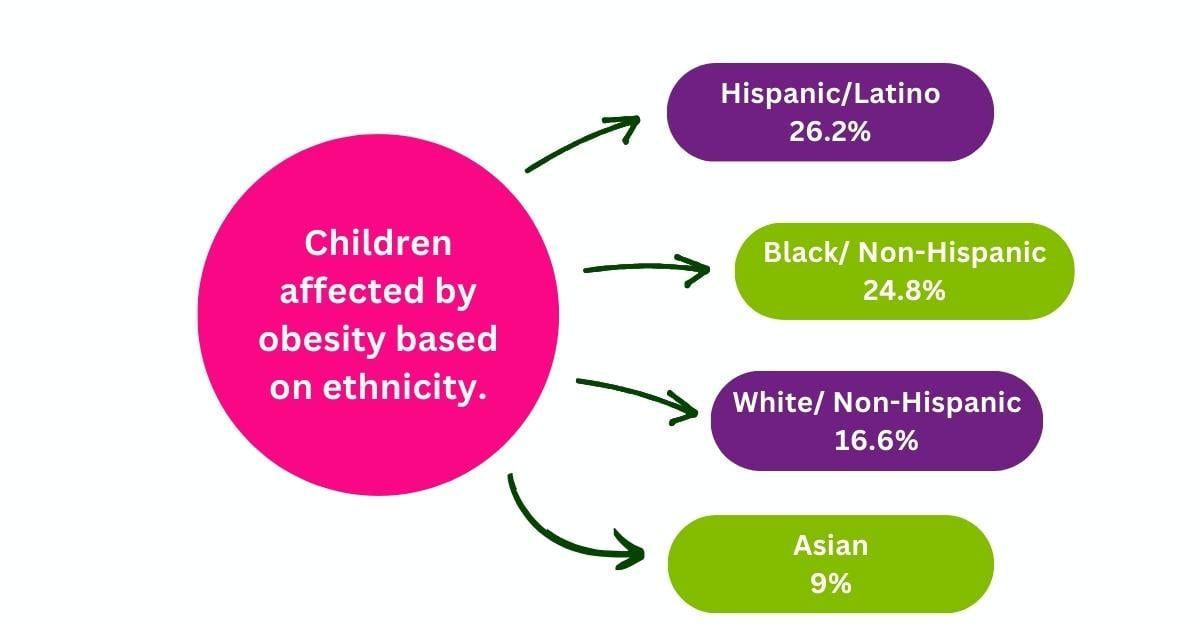
Can Socioeconomic Status Play a Role in Childhood Obesity?
Between 2011 and 2014, obesity rates declined among children 2 to 19 years of age when the education level increased in the individual who was the head of household.[1]
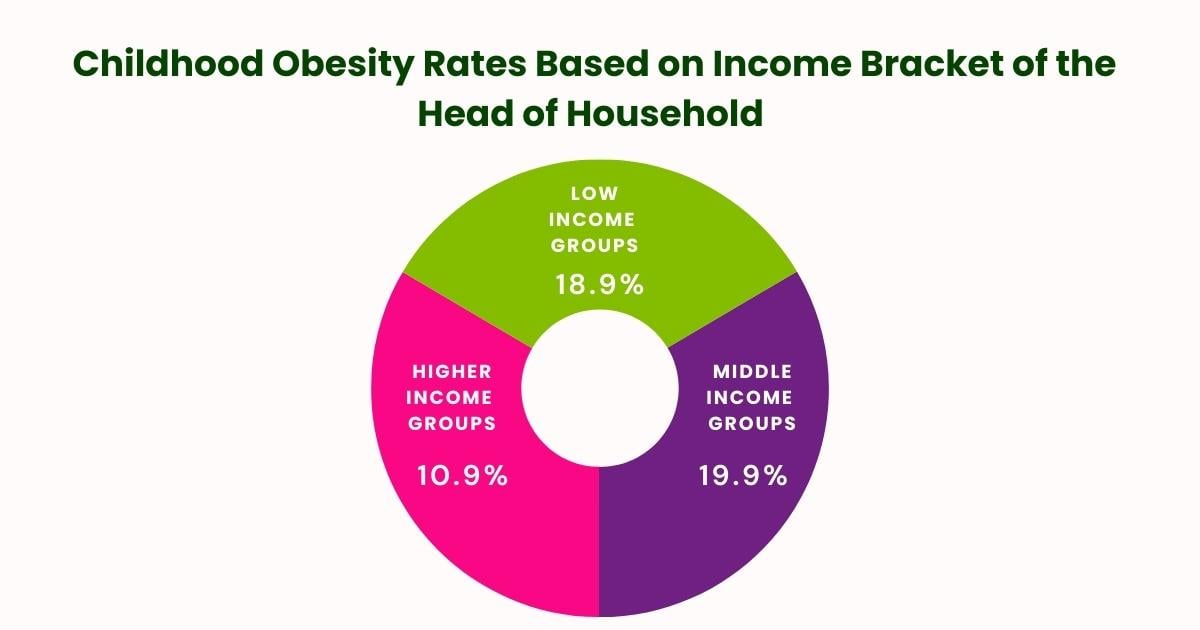
The community in which a child resides, along with socioeconomic status, can also affect their risk of developing obesity.
The foods children consume away from home at daycare facilities and schools and the physical activity at these establishments can all contribute to obesity risk factors.[2]
Some other socioeconomic factors that can contribute to childhood obesity are: [2]
- Affordability and accessibility of healthy foods
- Inaccessibility to parks or recreation areas to perform physical activity
- Lacking a support system

What Causes Childhood Obesity?
Obesity results from weight gain due to increased calorie consumption that surpasses energy expenditure.[4]
Obesity is quite dimentional. It is a condition that can be impacted by numerous factors, including: [4]
- Cultural factors
- Genetic factors
- Behavioral factors [2]
- Environmental factors
- Biological factors
- Socioeconomic status
Predetermined factors such as genetics and biology are inherited and cannot be modified. [4] Genetics increases the chances of a child becoming obese, and having immediate relatives, such as a sibling or parent who has obesity, increases the risk as well.[2] However, the factors that remain can be modified with lifestyle changes.[4]
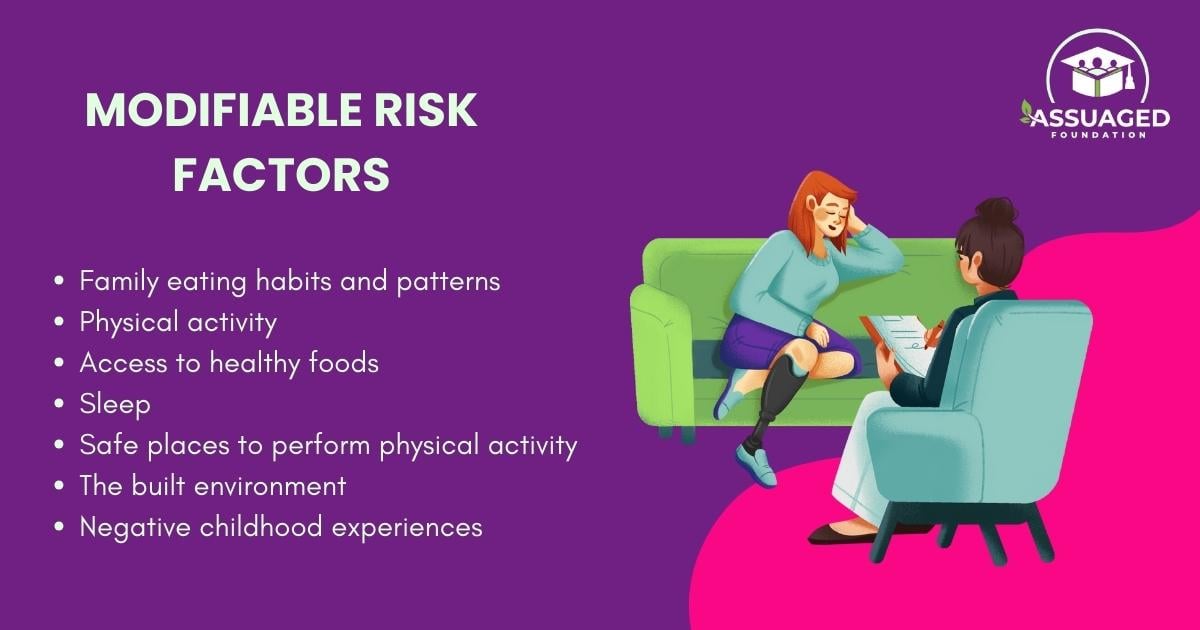
In industrialized nations, such as the United States, food choices that individuals prefer have changed due to marketing and easy access to processed foods that are higher in calories, including beverages with excess sugar and fast food.[4]
Foods higher in calories are more energy-dense, and the consumption of these foods, along with snaking and larger portion sizes, has shown a direct association with seriously increasing rates of obesity in industrialized countries.[4]
The increase in screen time, such as video games, computers, smartphones, and television, has increased sedentary behaviors and decreased physical activity, which plays a role in childhood obesity.[4]
Health Risks and Consequences of Childhood Obesity
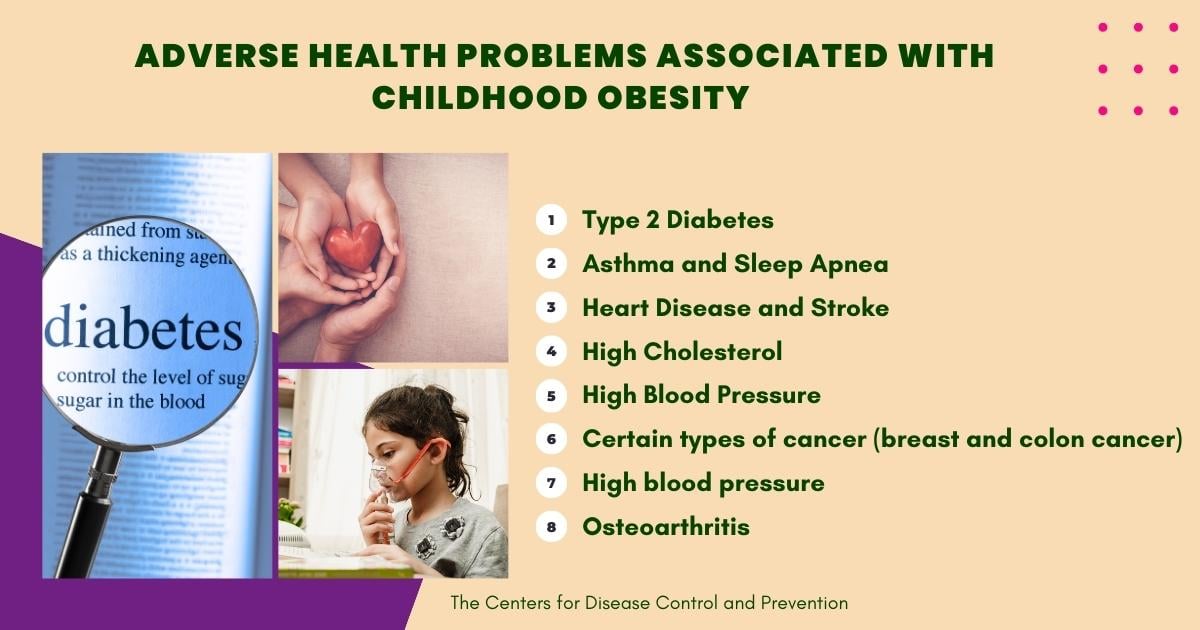
Children who are obese may also experience:[1]
- Low self-esteem
- Bullying
- Depression
- Social exclusion or isolation
How can Childhood Obesity be Prevented?
When addressing obesity in children, eating habits and exercise are the most essential approaches. Seeing that their bodies are still developing weight loss would not be the best strategy for children, as doing so can impede their growth and development.[3]
To prevent childhood obesity, it is important to focus on lifestyle changes that can be established in early childhood stages, including reducing sedentary activities such as screentime activities, engaging in regular physical activity, and adopting healthier eating habits.[3]
Parents, as well as caregivers, play a crucial role in preventing childhood obesity. To aid in preventing childhood obesity, parents and caregivers can provide healthier snacks and meal options for children, including the encouragement of physical activity.[3]
They can also focus on the health of the entire family, changing the eating habits of everyone in the household to raise awareness of nutrition education and to build and promote lifestyle changes for everyone involved.
Family dynamics and parental structure form a support system and a role-modeling approach.[3]
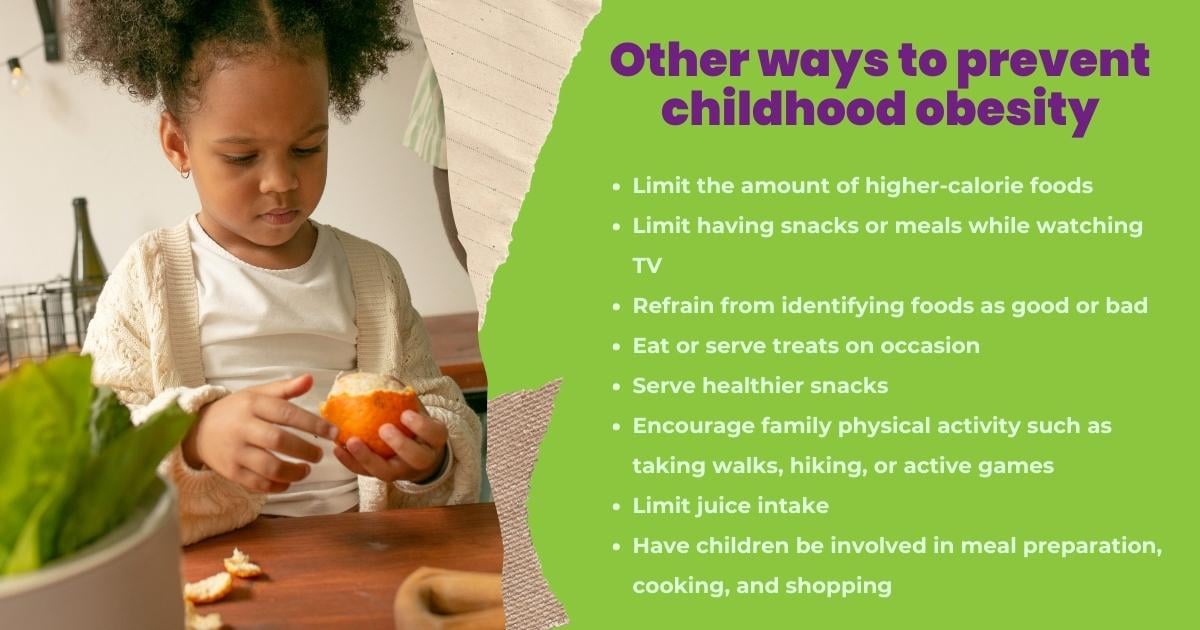
Choosing a healthy plant-based and vegan diet is most beneficial when it comes to:
-
Higher levels of energy;
-
Improved sleep;
-
 Aids in energy and overall happiness;
Aids in energy and overall happiness; -
Provides a sense of comfort and relief;
-
Could prevent major diseases such as obesity and diabetes;
-
Accomplish weight-loss and management; and
-
Improves mental and cognitive functioning.
There are really no excuses not to try healthier habits in your everyday life. If you are a man or woman looking for specific benefits of adopting healthier habits or just want to know about the general healing properties of herbs. Please remember to comment or post any health questions, or contact us directly!
Also, feel free to share any of your favorite recipes to make and share it with the Assuaged community on our ➡️ Share A Recipe ⬅️ page!















